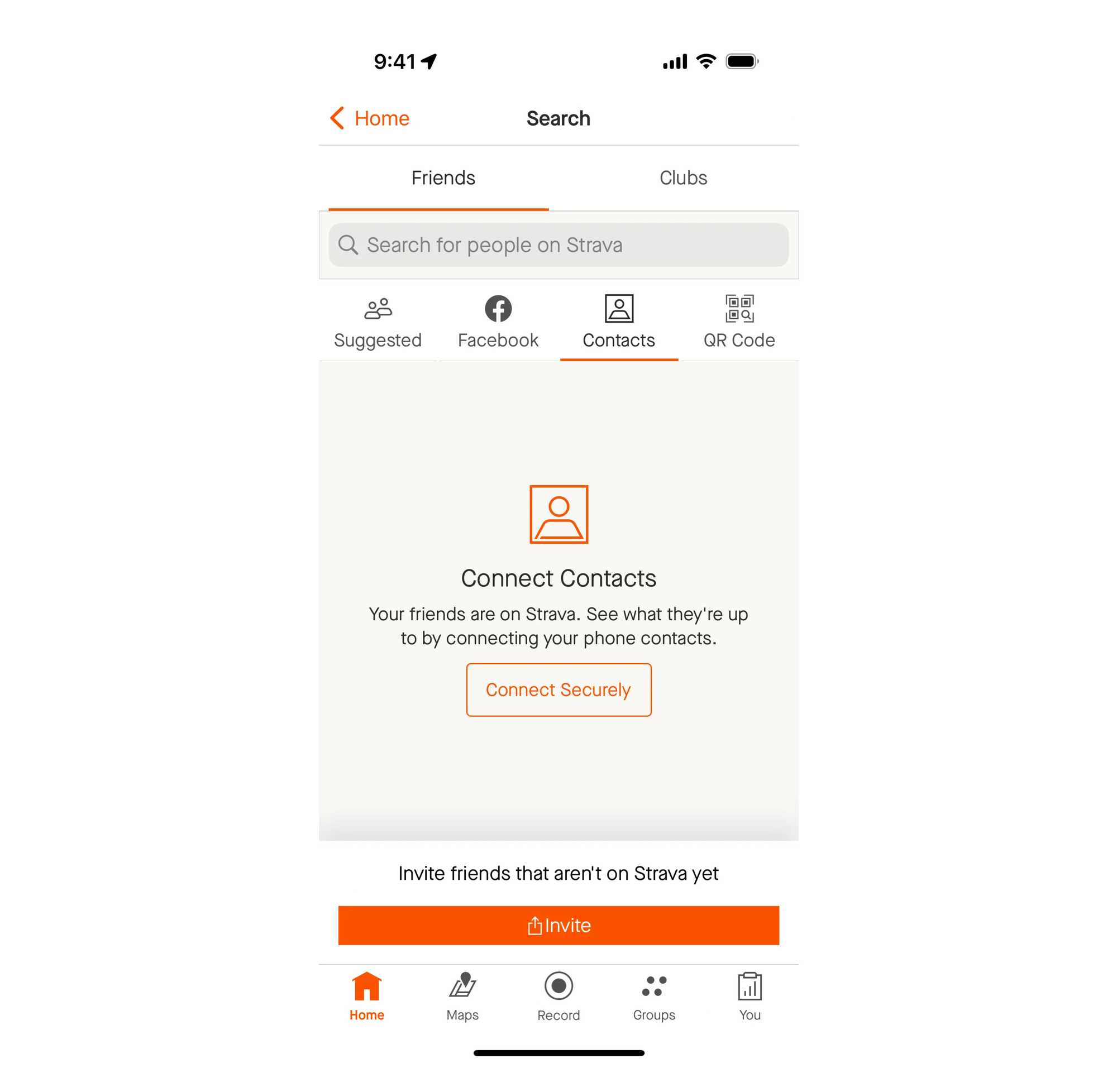Logging into a New App That Knows Who You Are

When’s the last time you signed up for a new product? It’s often quite a lonely experience, and finding friends can be difficult. One of the most common ways around this is by uploading your contact book.
If users sign up for an app with their phone number, that means each user identity has a phone number attached to it. So, when you upload your contact book, the app can search through the numbers inside it and tell you if any of them are already associated with an account. From there, it can prompt you to follow those accounts, add them as friends, or engage in some other way.

This is a helpful method for solving your individual cold start problem as a user. Especially in social products, the faster you can make connections, the richer your experience will be. That’s one of the reasons why, during hypergrowth, Facebook focused so narrowly on getting each user to 7 friends in their first 10 days. Once you find a dense network, you're more likely to have a good time and stay.
Density is easier to find when you piggyback on an existing network, which is why Facebook launched to one college at a time in its early days, why Gas app had so much success launching to one high school at a time, and why – you guessed it – mobile app developers so often ask you for access to your contacts book.
That said, there are still a few problems with using the contact book as the existing network. First, there is no guaranteed uniformity. Your name in one person’s phonebook might be “Rando I met at party” but it might be “BFFL” in another.
The solution to this is a public profile, like your Instagram or X page. With a public profile, you have one identity that is broadcast to the network in question. Both the person you met for five seconds at a party and your best friend on earth have the same view of your Instagram profile, even if they have different names for you in their contact books.
But what about the 7 or 8 other apps where you have an account? Do you find it cumbersome to manage 7 or 8 usernames, passwords, profile pictures, and bios across several different apps? Do you find it annoying to upload your contact book, connect your Instagram, and connect your Twitter to find your friends whenever you join a new one?
If you’re like me, then you probably do find it annoying.
Does it have to be this way?
Imagine instead that when you logged into a brand new app for the first time, it already knew who you were, what you care about, and the people you value.
Let's say you hear about a new app WritingPlace and you sign up with your phone number. The app asks you if you want to be discovered by people who know your phone number. You say yes. Now, it shows you your friends who are already using the app.
This is cool, but not a departure from what you’ve experienced before. You poke around, sharing some of your writing and commenting on other people’s posts. A few strangers hype up your posts, and you start to engage with theirs. In other words, you made new internet friends :)
Now, a week passes and you join another new app, VideoSpace. You sign up with your phone number, and allow yourself to be discovered by friends. But you also see an option to be discovered by your friends from WritingPlace. You agree, and instead of being dropped into an anonymous content feed that has to guess who you are, you’re dropped into a feed of videos that your friends from your phonebook and your new friends from WritingPlace have engaged with. As you start to socialize around videos, you make more new friends.
And when you join the next app, your bring your friends with you again. Your web of social connections continues to grow, instead of starting from zero every time. As you use you use more apps and build more connections, it will be easier for both the app creators and other users to develop a sense of what you value. This means that each new app will be able to create experiences that take your values into account (if they so choose – some apps might intentionally ignore your existing expressed preferences and friendships for the sake of serendipity – it’s up to the creator!)
We hope that this network of interoperable apps can empower content creators by enabling them to completely own their relationship with their audience, empower developers by letting them focus on the experiences they’ve dreamt up rather than building a sign up / find your friends flow for the millionth time, and empower content consumers by giving them the freedom to move from experience to experience while bringing their preferences, connections, and histories with them.
We call web2 social networking, but is it really social networking when all the apps are silos?
If building great product experiences on a decentralized social protocol sounds interesting to you, please reach out – we’d love to get in touch. Join us on our mission to make a better internet :)
